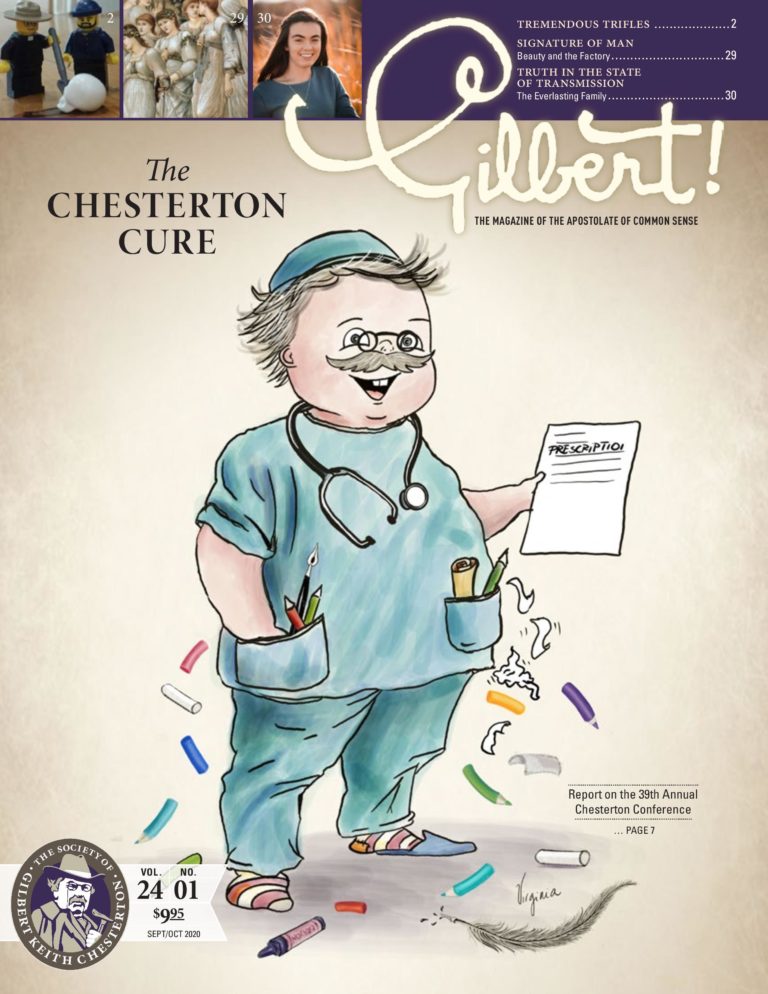Before I return to profiling some of Chesterton’s most famous debates with prominent figures, I believe that it is important to address a pressing issue that is a growing concern in today’s society. That issue is the phenomenon of people expressing opinions others object to, which leads to an uproar, often on social media, which leads to the target of the ire suffering some serious repercussion, such as the loss of a job, a smear on his public reputation, or even being driven to suicide. This disturbing trend has been dubbed “cancel culture.”
“Cancel culture” is used to describe the phenomenon of people—sometimes just one person, often groups of varying sizes—who call for people to be fired, shamed, or otherwise penalized for an offense. This can be for perceived improper actions, expressing opinions others dislike, or even based on no other reason other than that someone is standing in someone else’s way personally and professionally and therefore must be destroyed.
Very often, it works. A mob of people, often on social media, complain, and a company or other institution swiftly caves and punishes, demotes, or terminates the employment of the target of the ire. Often, the target is not given sufficient chance to defend himself. The only thing that the figures in charge are aware of is a fiery throng of anger, and they seek to quench it as quickly as possible. It is ironic, that as increasingly vociferous calls are made to abolish the official police force and close prisons, there is a growing push towards giving power to an uncredentialed outrage mob, and wrecking people’s reputations and livelihoods without any semblance of a fair trial.
There is a way to fight this, however. Surprisingly, the proponents of “cancel culture” will frequently abandon their attack after someone stands up to them, returns the attack, or simply ignores them. The outrage mob simply falls dormant or moves on to a new target.
So why am I addressing this phenomenon in a series of articles based on the debates that Chesterton held with people who opposed his views on society, religion, and politics? The reason is that in today’s society, it seems extremely likely that Chesterton himself could be the focus of multiple “cancel culture” attacks. Gone are the days when two opponents could rent out a lecture hall and state their opposing viewpoints, and the audience attended out of an interest to watch the battle of ideas play out on a stage. Now, many proponents of “cancel culture” contend that even the slightest opposition or contradiction of their accepted worldviews is an act of cruelty and even violence that must be eradicated, ostensibly in the purpose of creating a better and more just world.
If Chesterton was alive today, and using the technology available today to promote his message to the world, it is likely that a lot of people would take umbrage to his takes on … well, everything. Therefore, they would call for Chesterton’s social media platforms to be shut down, his YouTube videos to be demonetized, his speaking gigs to be cancelled, his publishers to stop printing his books, and essentially, do everything in their power to remove his influence on the world and reduce him to penury.
I remember that just two decades ago, pundits were hailing the advent of the Internet as the coming of a new golden age of shared information and opinions, potentially uniting the world in an enlightened time of understanding and compassion. From a 2020 perspective, this opinion no longer seems so much sweetly naïve as it feels completely detached from reality. A recent poll showed that a large percentage of the populace is afraid that sharing opinions will lead to terrible consequences for them.
When speaking one’s mind, writing an essay, or voicing disagreement are seen as a terrific gamble that’s not worth the trouble or risk, what does that do to culture, society, intellectual life, and human interaction as a whole? The whole point of my series of Chesterton’s debates was to illustrate how people could take their disagreements and use them to create literary art, drawing in people to watch or read along with them, potentially persuading people to their side, or at least leaving them with a deeper perspective of why people held opposing perspectives.
The purpose of debate ought not to be to crush or humiliate, for the ultimate goal of crafting a genuine argument is to convince rather than destroy. If “cancel culture” wrecks someone’s life, people may have advanced their cause, or have they? And what has been lost in the process? Freedom to interact, courage to express oneself, encouragement to think, and motivation to go against the flow are sacrificed.
To those who may believe that some people deserve to be removed from the public sphere, or for those who despair over the current state of public discourse, I shall conclude with Chesterton’s insights: “Charity means pardoning the unpardonable … Hope means hoping when things are hopeless … And Faith means believing the incredible.” Adding to that, if we are to popularize Chesterton’s approach to debate and controversy to the public sphere, we must be prepared to build bridges where the ground seems too unstable to support the weight of a unifying structure, and we must also be prepared to stand by those opinions that we believe to be true, even in the wake of a firestorm of criticism.
ABOUT CHRIS CHAN
Chris Chan is a contributing editor to Gilbert Magazine.






